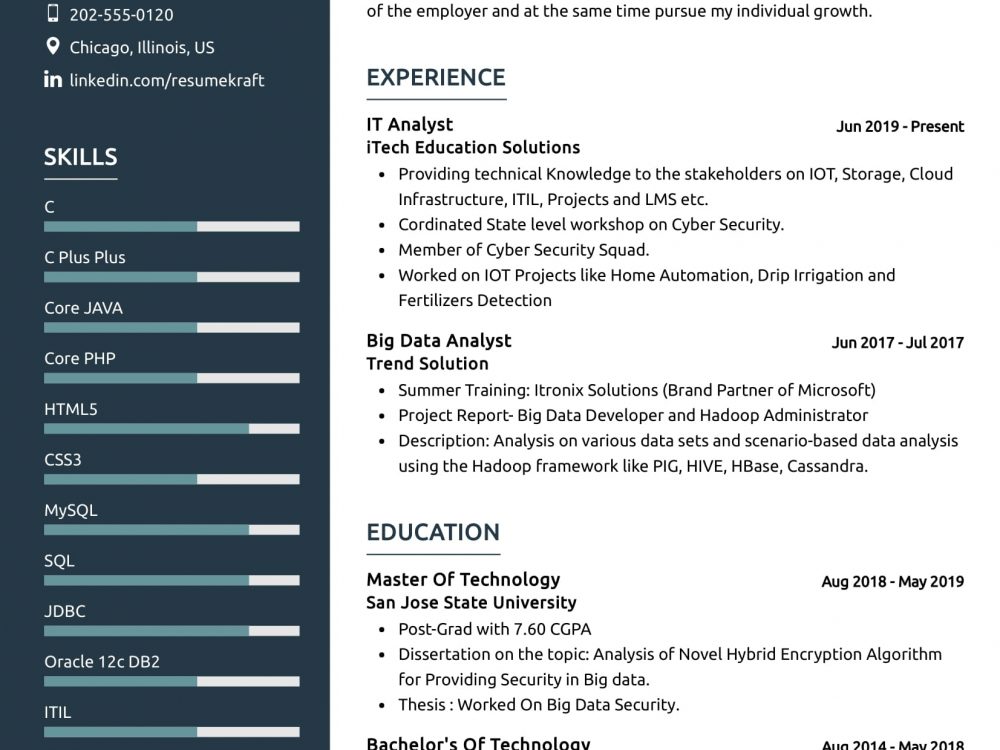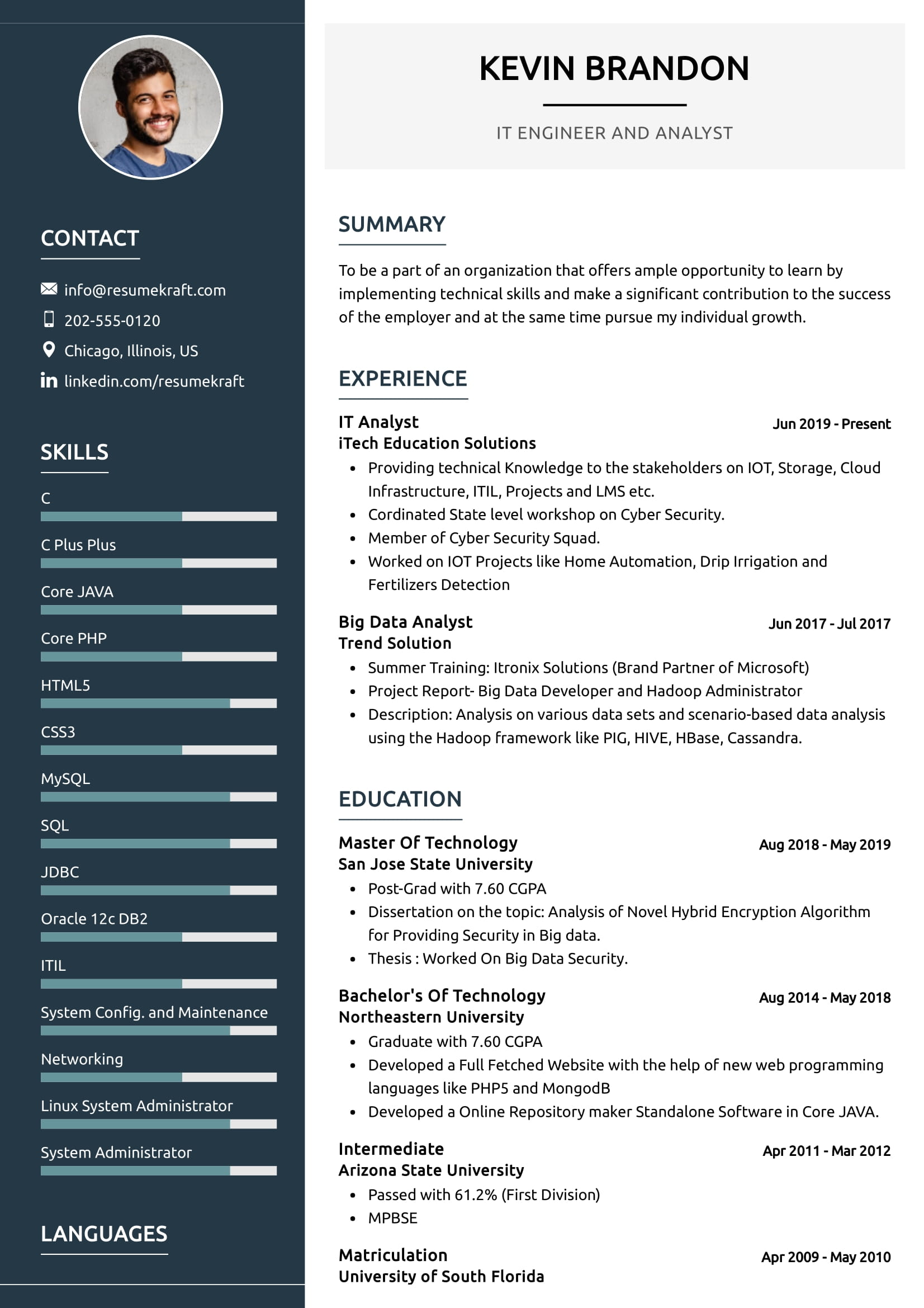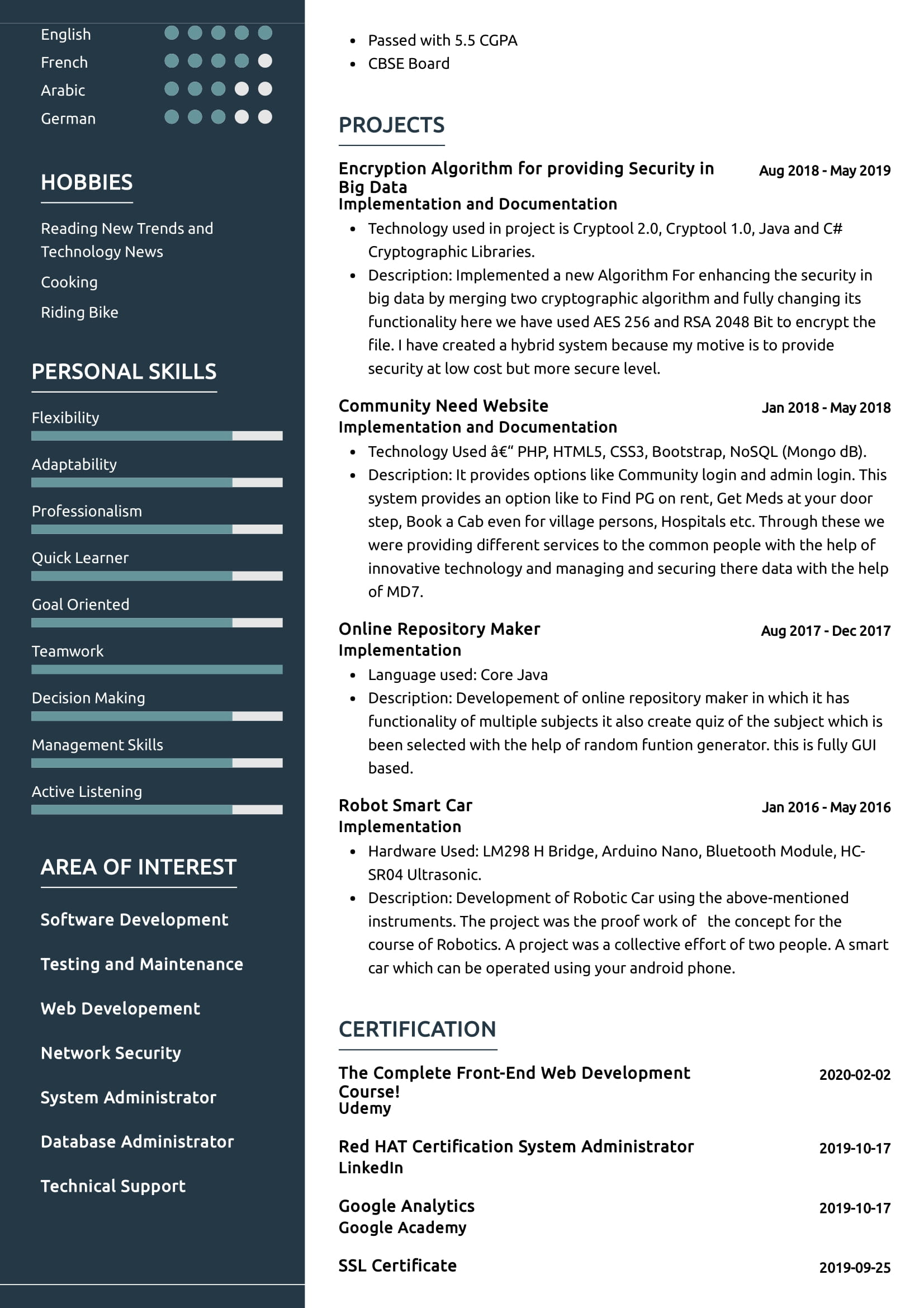What Should Be Included In A IT Analyst Resume?
.An IT analyst resume can be a great tool to stand out from the competition and showcase your skills and experience. It’s important to include all relevant information, including your work experience and education, as well as any certifications or specialized knowledge you have. You’ll also want to showcase any awards or achievements that demonstrate your expertise in the field. When writing your IT analyst resume, make sure to include as much detail as possible about any projects you have completed, as well as any technical skills or software you are familiar with. Additionally, include any relevant data analysis, problem-solving, or troubleshooting skills you have.
Finally, be sure to list any certifications you have and be sure to showcase any areas of expertise you have. Some IT analysts may wish to highlight their understanding of computer programming languages, software engineering, or development. Be sure to note any languages, frameworks, and libraries you are familiar with. Additionally, if you have experience in system administration, network engineering, or database management, be sure to list those as well. It is also important to note any customer service or communication skills you have, as IT analysts often need to interact with customers and other stakeholders.
By including all of these important details, your IT analyst resume will be sure to stand out and make a great impression. It’s essential to make sure you highlight your experience, skills, and certifications so that potential employers can quickly identify how you are the perfect candidate for the job.
What Skills Should I Put On My Resume For IT Analyst?
When writing a resume for an IT Analyst role, it is important to include a wide range of skills that demonstrate both your technical and soft-skills. Defining and showcasing these skills is essential to a successful job search.
In addition to technical abilities such as programming languages, database administration, and troubleshooting, it is important to also display your communication, problem-solving, and analytical skills. For instance, IT Analysts must have the ability to understand complex technical concepts and communicate them in simple, easy-to-comprehend language. They must also be able to analyze data and identify trends and issues within the data. Finally, they must be able to apply their knowledge of the industry to identify and solve potential problems.
Including the right set of skills on your resume can help you stand out from the competition and demonstrate your qualifications for the role. Here are some of the key skills to include on your IT Analyst resume:
- Knowledge of database design and management
- Proficiency in coding languages such as HTML, CSS, and Java
- Understanding of networking principles and protocols
- Experience with software development
- Ability to troubleshoot hardware and software issues
- Understanding of system installation and configuration
- Analytical and problem-solving skills
- Excellent communication and interpersonal skills
- Ability to work independently and collaboratively
- Proficiency in data analysis and report writing
By including these skills on your resume, you can demonstrate your ability to handle the responsibilities required of an IT Analyst. Additionally, showcasing these skills can help you stand out from the competition and increase your chances of being selected for the position.
What Is The Job Description Of The IT Analyst?
As an IT analyst, you serve as a critical bridge between the business sector and the world of technology. Your primary responsibilities include analyzing and interpreting data to make well-informed decisions about how best to utilize the technology available to your organization. You will be responsible for identifying areas where technology can be used to improve customer service, increase productivity, or promote cost-efficiency. Additionally, you will provide technical support to users, design and implement IT solutions, and troubleshoot any issues that arise. To successfully perform this job, you need to have a thorough understanding of the industry, strong problem-solving skills, and the ability to work with a variety of applications and databases.
What Is A Good Objective For A IT Analyst Resume?
Having an effective objective statement on your IT analyst resume can help you stand out and get noticed by potential employers. An objective statement should be concise and to the point and should clearly state your goal of becoming a successful IT analyst. A great objective will outline your qualifications and experience and explain why you are the perfect candidate for the job. It should also demonstrate your knowledge and skills of the IT field.
When writing your objective statement, it is important to highlight your skills and knowledge. Showcase any software experience you have, such as experience with Microsoft Office, Java, HTML, or other programming languages. You should also mention any certifications or degrees you have related to IT, such as a degree in computer science.
It is also important to emphasize your ability to solve problems and think critically. Showcase any experience you have in troubleshooting, problem-solving, or other related activities that demonstrate your ability to think quickly and come up with solutions.
Finally, you should use the objective statement to explain why you are the ideal candidate for the job. Highlight any unique qualities or experiences you have that make you the perfect fit for the position.
By writing an effective and targeted objective statement for your IT analyst resume, you can stand out from the competition and make a great impression on potential employers.
What Are The Career Prospects In The IT Analyst?
An IT Analyst is a highly sought-after professional in the world of information technology. This position requires a combination of technical knowledge and interpersonal skills to help organizations better utilize their IT infrastructure. As a result, these professionals are integral in developing and implementing strategies that maximize efficiency and maintain the integrity of IT systems.
The demand for IT Analysts has increased significantly in recent years, as organizations strive to remain competitive in the digital age. This means that the job market is growing, and there are plenty of opportunities to advance your career and make a name for yourself in this industry.
IT Analysts have a wide range of responsibilities, such as analyzing system requirements, designing and developing systems, and performing quality assurance tests. They must also maintain IT systems, provide technical support, and troubleshoot problems. As a result, they must possess excellent problem-solving skills and be able to work independently and in teams.
The job prospects for IT Analysts are excellent. Many employers prefer to hire candidates with experience and industry certifications, such as Microsoft Certified Solutions Associate (MCSA) and Certified Information Systems Security Professional (CISSP). These certifications demonstrate a commitment to the field and a high level of expertise.
In addition to the potential for job stability and career growth, IT Analysts can also look forward to a competitive salary and excellent benefits. Those who demonstrate exceptional skills and dedication to their job can also expect to receive promotions and bonuses.
Overall, IT Analysts have the opportunity to make a positive impact on organizations and help them stay ahead of the competition. With the right qualifications and a commitment to excellence, an IT Analyst can launch a successful and rewarding career.
Key Takeaways for an IT Analyst resume
When writing an IT Analyst Resume, it is important to include key takeaways that will capture the attention of potential employers. An IT Analyst is someone who is responsible for analyzing business problems and designing software solutions. As such, having a well-crafted resume is essential for reaching out to employers in the IT field.
The following are some key takeaways to include in an IT Analyst resume:
- Define Your Technical Skills: Your resume should showcase your technical skills and experience. Clearly outline all the technologies you have expertise in, from programming languages to software development, database design, and networking.
- Demonstrate Your Problem-Solving Skills: IT Analysts must be problem-solvers in order to develop successful software solutions. To demonstrate this, include examples of how you have solved problems in the past. This can include technical challenges you have faced, successes in developing applications, and any relevant certifications.
- Highlight Your Knowledge of Business: IT Analysts must have a solid understanding of business processes and operations. Showcase your expertise in this area by outlining any relevant business knowledge you have obtained through your studies or prior projects.
- Include Your Achievements: When writing your resume, make sure to include any awards or accolades that you have achieved in the past. This will demonstrate to potential employers that you are an experienced and successful IT Analyst.
By following these key takeaways for an IT Analyst resume, you will be well on your way to getting the job you want. The resume is the first step in the interview process and should be tailored to the specific job you are applying for. With a well-crafted resume, you can showcase your skills, problem solving abilities, and business acumen to potential employers.



